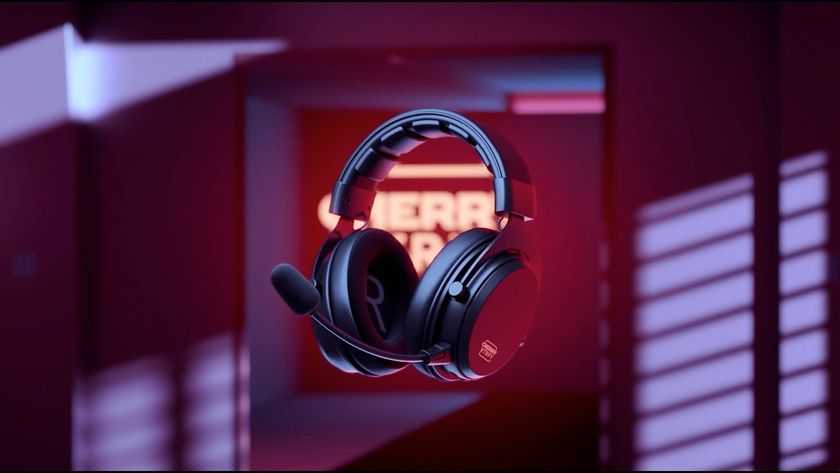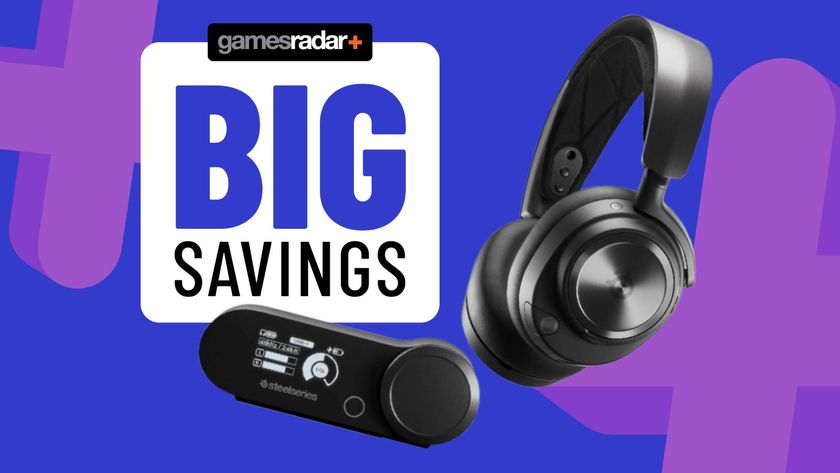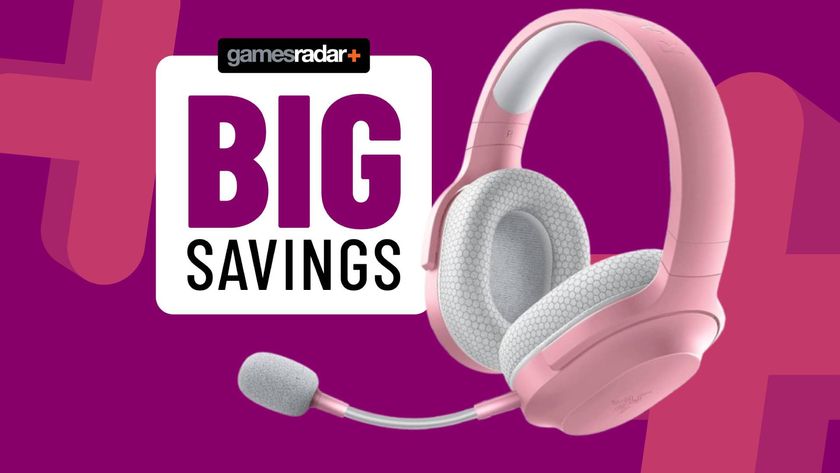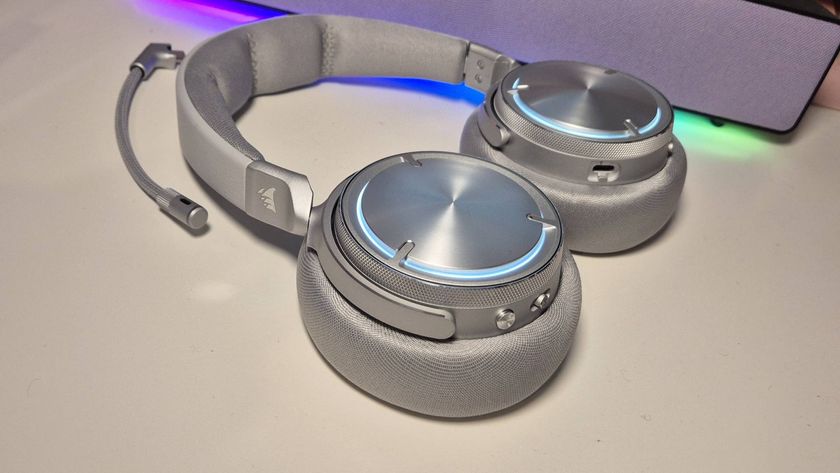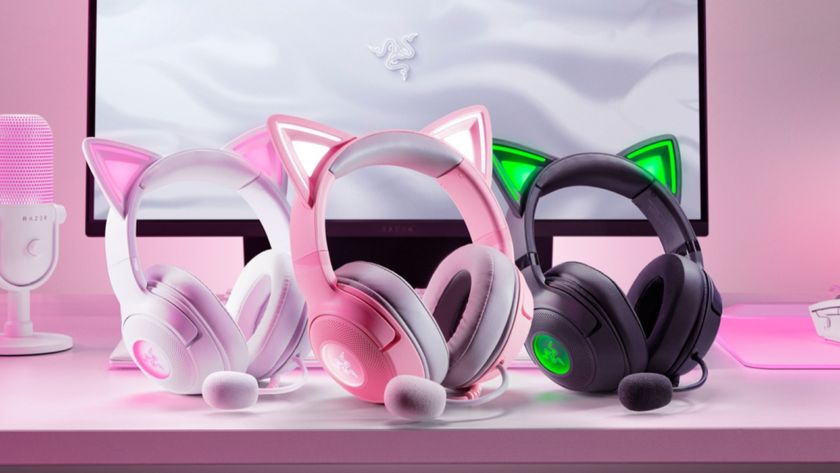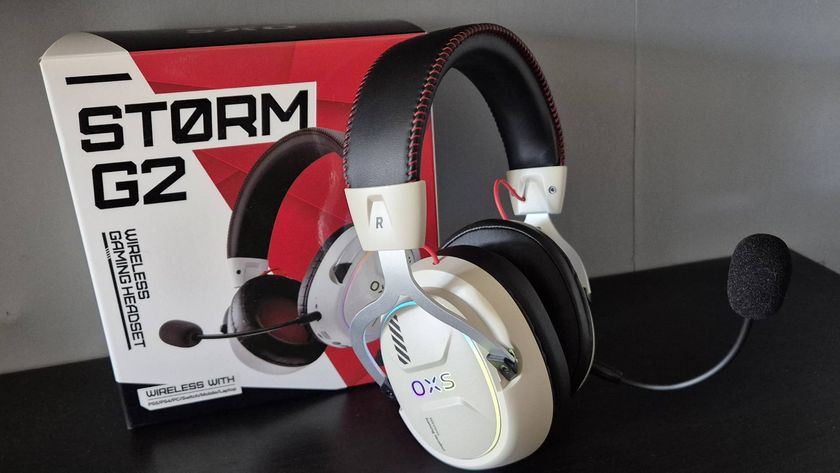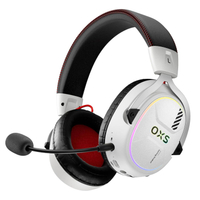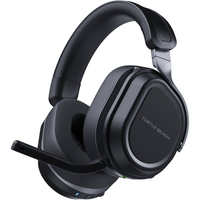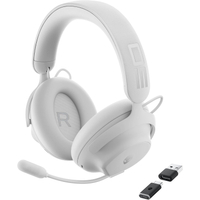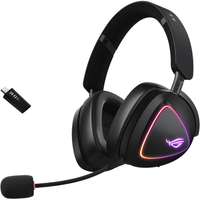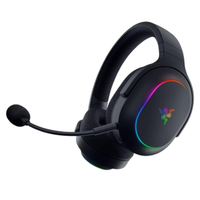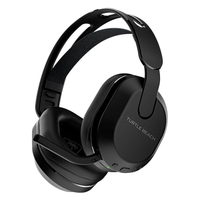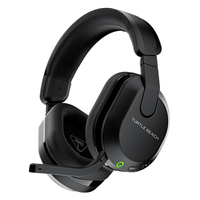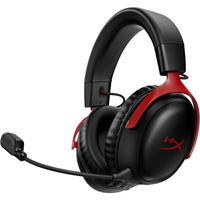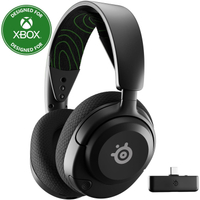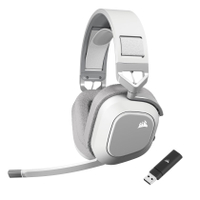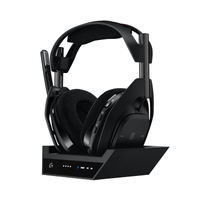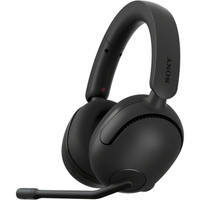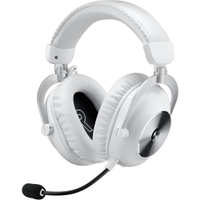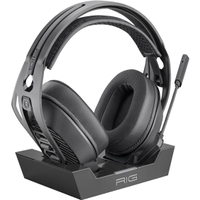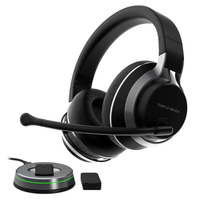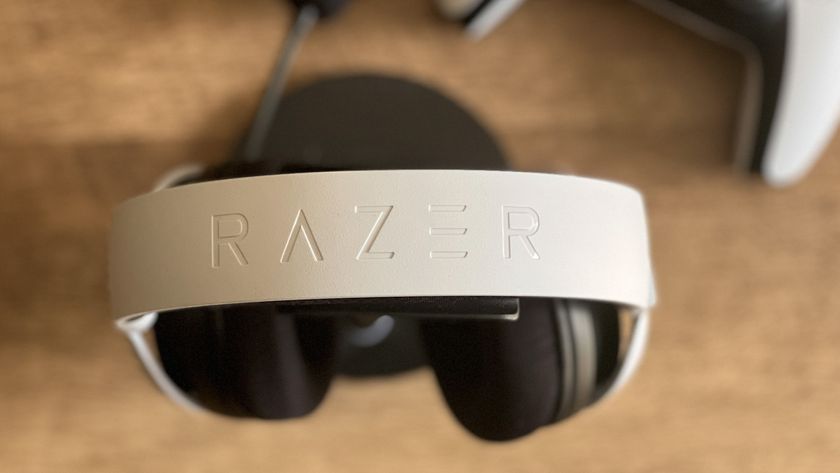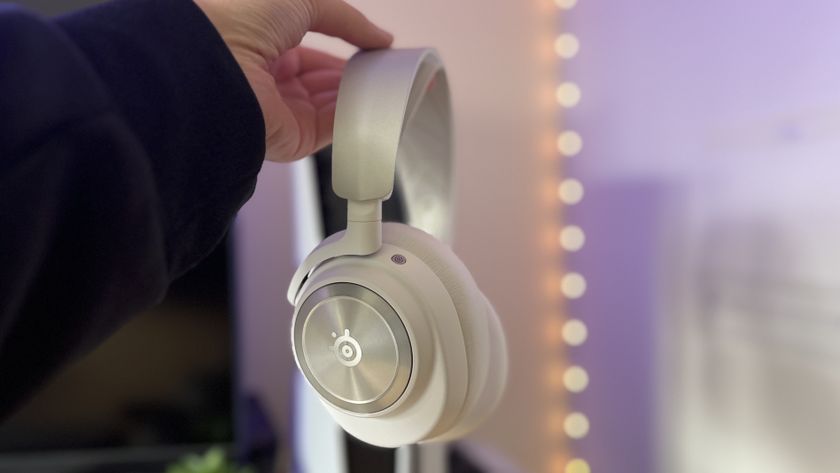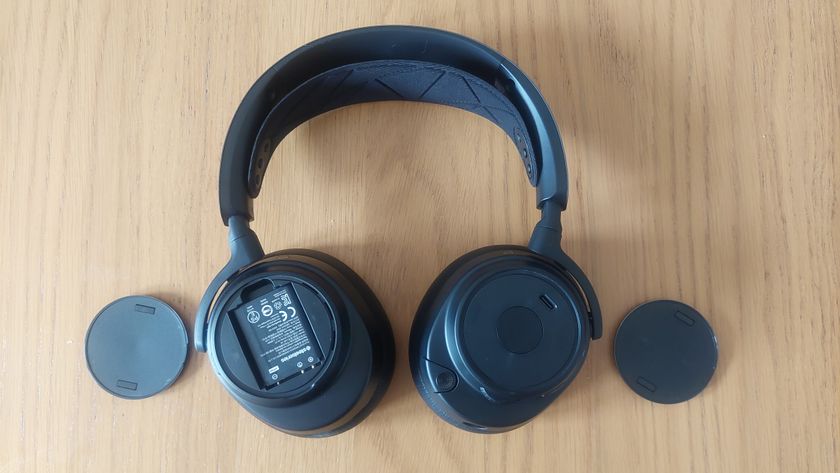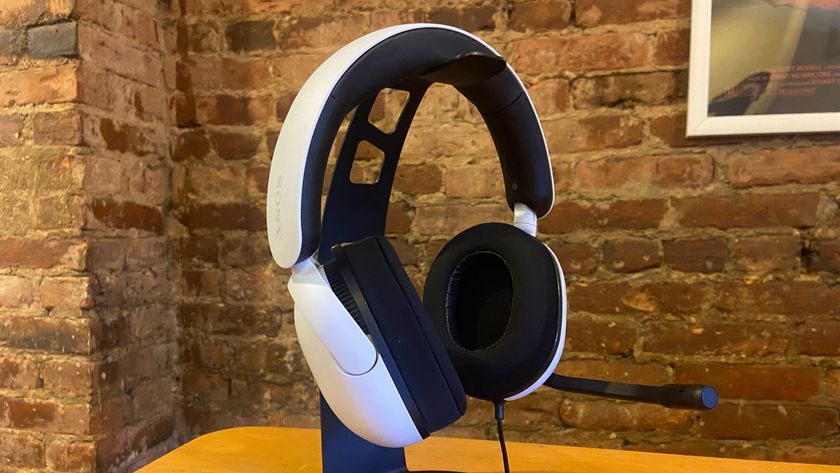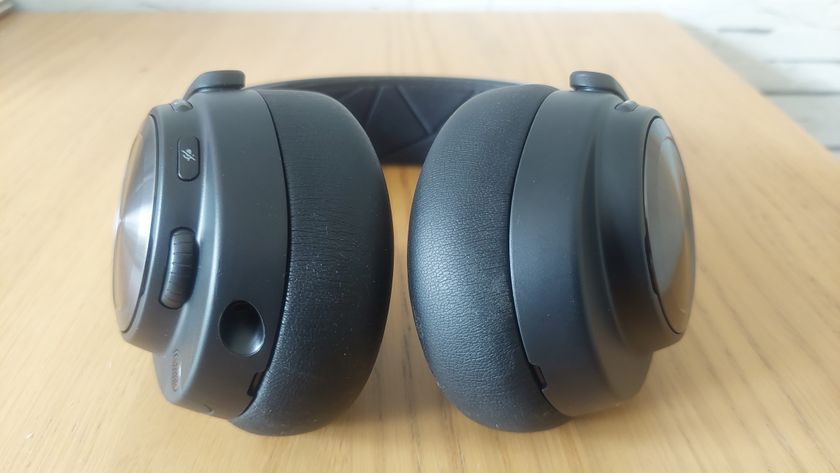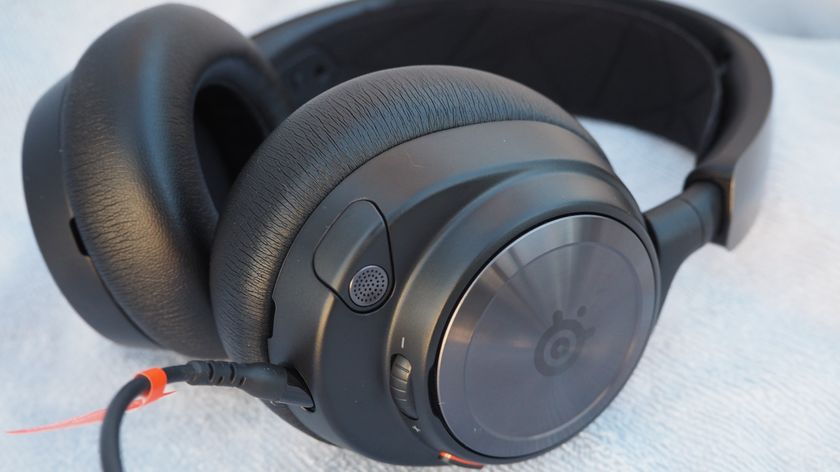The best PC headset for gaming 2025
You've always got a pick among the best PC headsets for gaming - if you play on desktop or laptop, these are your best bets
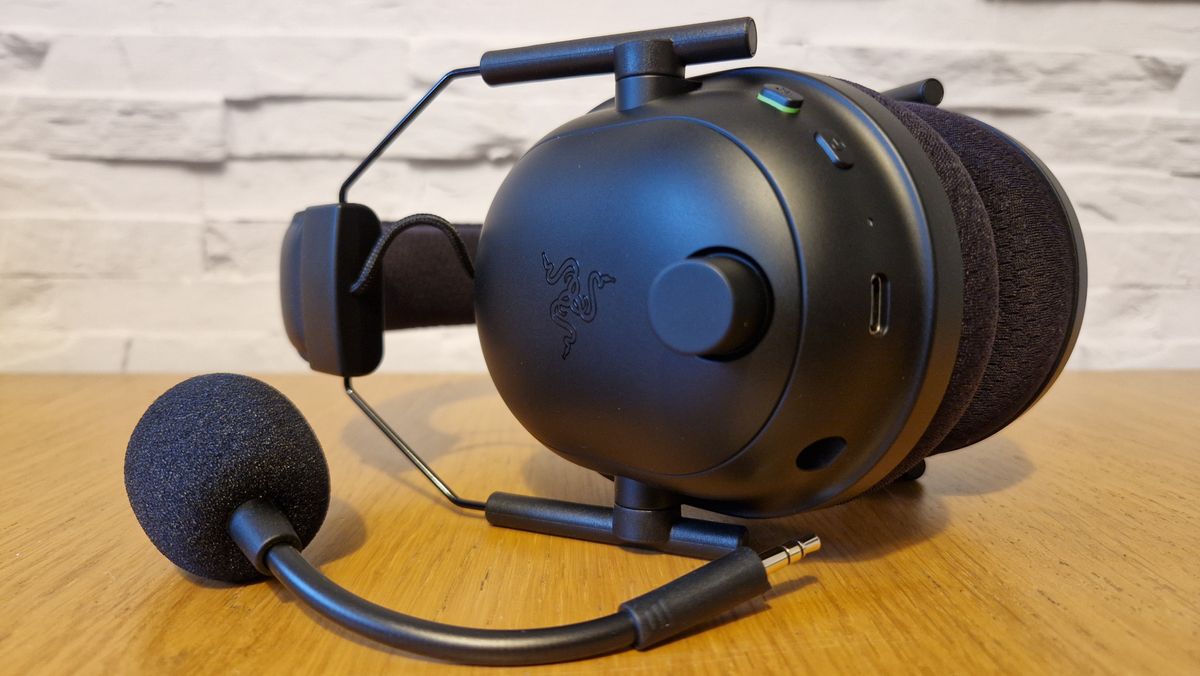
If you prefer to sit back and relax in your gaming chair, as opposed to curling up on the sofa with a controller in hand, then you'll more than benefit from picking up one of the best PC headsets. Even if your PC setup is equipped with fancy speakers, adding a high-end headset into the mix with sophisticated EQ software, wider surround sound support, inbuilt game presets, and a high-quality microphone can truly enhance your PC gaming adventures.
PC players have a myriad of headsets to choose from, as the best gaming headsets are typically compatible with the PC, and consoles. Better yet, headsets from brands like Razer, Corsair, Logitech, SteelSeries, and HyperX tend to have software you can download for free on your desktop that opens up more ways to tailor your audio just how you like it.
Overall, the best PC headset is the Razer BlackShark V2 Pro. It's a PC-first device that's been tailored to Windows needs while still offering excellent audio and a class-leading microphone. Not to mention, it's incredibly comfortable even after the longest of online gaming sessions. We've had hundreds of cups like it around our noggins by now, and we're rounding up all our favorites right here.
The Quick List
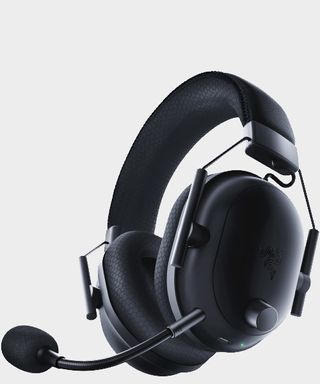
Super crisp, clear, and loud - this boom is something else, and it's accompanied by fantastic audio and directional cues to boot.
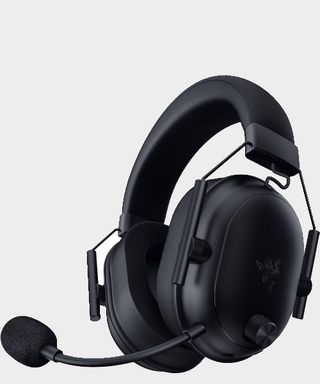
The Razer BlackShark V2 Hyperspeed squeezes the same audio and mic of the Pro into a much more affordable price point - a real value winner.
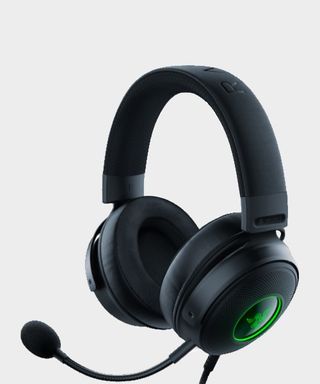
You're still getting that excellent audio quality and 7.1 surround sound, as well as a comfortable set of cups - but the Kraken V3 X offers a far more budget-friendly entry price.
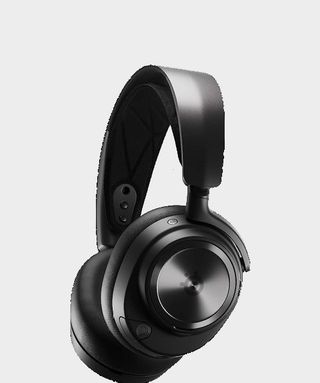
The Arctis Nova Pro Wireless is built for more than just PC. The DAC hub means your wireless connection can spread across a multi-platform setup.
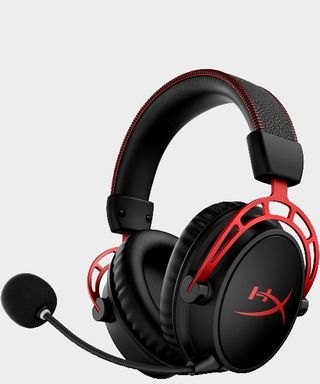
Boasting a massive 300 hour battery life, the HyperX Cloud Alpha Wireless packs a punch - and those numbers hold up in testing as well, even if the mic is disappointing.
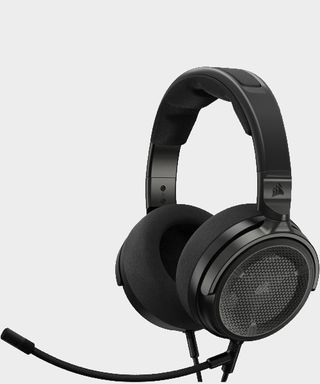
If you don't like the 'locked in' effect of closed back headsets, the Virtuoso Pro is your best bet. It's open back, but the stripped back features mean it's not for everyone.

Gaming headsets have been glued to my head even longer than I've been reviewing them during my time as a gaming tech writer, and I grew up with PC gaming like the rest of us. (I even have the Grim Fandango tattoo to prove it.) That's why having a PC headset that doesn't skimp on great audio quality, a high-end mic, customization options, and one that provides the highest echelons in comfort is of utmost importance to me. Before writing about gaming audio tech, I spent years training as a professional musician, which included getting hands-on experience with studio-grade tech. This music degree, combined with my time spent reviewing headsets has since only emphasized my insistence on ensuring everyone has the best gaming audio experience possible, no matter the budget.
Recent updates
March 5 - For this update, I amended the tables to include numerical ratings, to make them easier to read at a glance. Additionally, I also included the Turtle Beach Stealth 700 Gen 3 and the OXS Storm G2 wireless gaming headset within the 'also tested' section. The Stealth 700 Gen 3 provides a premium sound to PC games thanks to its booming 60mm dual eclipse audio drivers, however its bulky cups don't measure up to the comfort set by the Razer BlackShark V2 Pro. Meanwhile, the OXS Storm G2 headset's lackluster sound and cheap-feeling build quality overshadows it's great-sounding mic and other positive aspects, and doesn't quite out-measure existing pairs of cups part of this list.
Currently, I'm also testing the Corsair Virtuoso Max wireless which could alternatively earn a spot in this list.
The best PC headset overall





Specifications
Reasons to buy
Reasons to avoid
The Razer BlackShark V2 Pro leads the pack when it comes to a PC gaming headsets. Fantastic audio is accompanied by the best microphone we've ever tested in a gaming headset, and it's all wrapped up in one of the most reliable designs the PC space has seen.
✅ You play online regularly: The microphone on this headset is begging to be used regularly. If you're constantly on comms, it's a must-see.
✅ You also play on PS5: The split compatibility between PC and PS5 is going to come in particularly handy if you split your time between the two systems.
✅ You're a competitive player: That mic, plus the excellent directional audio on offer here means this is a fantastic option for anyone who regularly plays competitively.
❌ You also want a headset for commuting: There's no ANC to these headphones, so if you're looking to double up your use for music regularly we'd recommend looking elsewhere.
❌ You mostly play single player: There's no point in paying for that high-end mic if you won't use it. If you usually stick to single player games, something more dedicated to luxurious soundstages will be better.
Design: From looks alone, it would be easy to confuse this latest release with any other in the BlackShark line. You're still getting that helicoper pilot form factor that's come to define the series, with Razer's all-black matte paintjob to finish it off. That makes for a luxurious finish, complimented by the steel headband and memory foam cushions. We did notice that headband slipping slightly when put on, but it never got in the way of a match and stayed tight during our tester sessions. All in, though, this is a particularly comfortable headset worthy of staying on the noggin for hours at a time.
Features: The microphone is the star of this show - and the reason the BlackShark V2 Pro is held in such a high regard for online play. Razer has doubled the sampler rate from 16kHz in the previous model to 32kHz here. In the real world that means incredibly clear, but still velvety rich voice profile. Our teammates were astounded at the quality here - not only does our chat stand out, but it's podcast quality to boot. Throw in a 70 hour battery life and a wealth of EQ settings and you've got yourself a long-lasting, endlessly competitive PC headset.
Audio: Between locating enemy gunfire and simply enjoying the breeze in Red Dead Redemption 2, we were impressed by the detail and clarity coming out of these drivers. This is truly fantastic audio, with a rich texture floating across everything from larger environments to more claustrophobic skirmishes. It's not just games that benefit from this attention to detail, either - streaming and music also sound particularly strong.
Verdict: Between long-lasting comfort in the design to onboard profiles to save settings directly to headset itself this is still a winner across the board. The reinvention of the 2023 classic has stormed onto the shelves, offering up one of the best PC gaming headsets we've seen so far.
Read more: Razer BlackShark V2 Pro review
Comfort | 4/5 |
Audio | 5/5 |
Battery | 4/5 |
Microphone | 5/5 |
Versatility | 3/5 |
Build quality | 5/5 |
The best PC headset for most players




Specifications
Reasons to buy
Reasons to avoid
The new Razer BlackShark V2 Hyperspeed packs quite the value. You're getting largely the same audio and microphone experience as you would on the V2 Pro but stripping the price down to $129.99 / £129.99. Considering the TriForce Titanium drivers and ultra-wideband microphone on offer here, that sets the Hyperspeeds apart from the vast majority of this lower mid-range market. We previously held the Razer BlackShark V2 as the best PC headset for most players, but with a wireless connection and boosted mic capabilities, the Hyperspeed has taken over.
✅ You prioritize high quality audio: If you're going all in on audio without raising that price too high, the TriForce Titanium drivers on offer here are going to suit your needs perfectly.
✅ You play online multiplayer with chat: This headset has the same mic as the more premium Pro model (a device we praise as the best for online chat).
✅ You primarily play on PC but split time with consoles: With a USB-A wired and wireless connection, this is a headset best suited for PC, but you'll still be able to easily connect to consoles and still get great audio to boot.
❌ You want a premium finish: If look and feel are particularly important, you'll want to move further up the price scale for a more robust form factor.
❌ You want a more portable design: If you're taking your headset out on the road with you you might prefer a detachable microphone and a swivel on that headband so that the cups can lie flat or fold up.
Design: You'd be forgiven for getting this and any other headset in the BlackShark line mixed up at first glance. The overall silhouette and form factor is largely the same, with a pilot style shape and those signature oval cups. However, Razer has made some tough calls here. In an effort to save space in the price tag for those luxury drivers, the brand has cut the build quality slightly. You're getting a cheaper plastic construction compared to the Pros, with a more hollow feel. On top of that the breathable fabric of the Pro cups has been replaced with a leatherette - that's not quite as durable, and is prone to flaking. However, comfort still remains solid even over longer sessions during our testing.
Features: Connectivity is a key area of improvement for the Razer BlackShark V2 Hyperspeed. Not only are you getting 2.4GHz and Bluetooth connections (the previous V2 model was wired only), but the Hyperspeeds can also be plugged directly into your PC. That's not something even the Pro above can do. It means you've got far more versatility in your connection, never really having to worry about dropping out mid-game. Considering there's a 70 hour battery life here you won't be running out of juice too often, but if you do that USB connection is great to fall back on.
On top of that, you'll also find the larger volume dial on the side of the cup. This is easily one of our favorite features of the line overall, providing plenty of landing space for quick in-game volume adjustments. The Hyperspeed takes this a little further as well, with a textured surface for additional precision which made all the difference during our CS2 testing.
Audio: Razer's putting its TriForce Titanium drivers to work here, and they sound just as strong as they do in their Pro housing. Crystal clear detailing carries the mid and lower ranges, in an impressive display of sophisticated balancing across the entire soundstage. On top of that, there's a satisfying level of precision to directional cues and a wide space to each game we tested in. The microphone is also the same as the Pro model, so its rich textured voice quality shines through in the Hyperspeed as well.
Verdict: Wireless PC headsets rarely offer this level of audio and mic quality in this price range. However, in dropping some build features Razer has managed to stand out against a packed and often beige market. If you're after an everyday headset that won't let you down on chat or in solo adventures at home, this is your go-to.
Read more: Razer BlackShark V2 Hyperspeed review
Comfort | 4/5 |
Audio | 5/5 |
Battery | 4/4 |
Microphone | 5/5 |
Versatility | 4/4 |
Build quality | 3/5 |
The best budget PC headset



3. Razer Kraken V3 X
Specifications
Reasons to buy
Reasons to avoid
The Razer Kraken V3 X is a more affordable, high value for money entry point to the Kraken range.
✅ You don't want to break the bank: The Kraken V3 X is perfect for those after a well-respected name (and the audio pedigree it holds) without spending too much in the process.
✅ A wireless connection isn't a necessity: This is a wired headset, which means you won't be worrying about battery life. If you don't need that cord-free connection you might as well save some cash with this budget option.
✅ You prefer a more subtle design: Unlike the rest of the Kraken line, the V3 X feels a lot more subtle. That's perfect for more professional use as well.
❌ You prioritize high quality audio: You'll get far better audio quality further up the price scale, with the Kraken V3 X sounding a little tinny compared to other more expensive entries.
❌ You need a 3.5mm connection: The USB only connection method is going to trip up anyone without a spare port, or those looking to double up as a console headset.
Design: The Kraken X takes on a familiar profile, with the same rounded cup shape as its more expensive siblings. However, things feel more stripped back here - the cups themselves don't jut out quite so far and the overall aesthetic is one of a more subtle experience. That's perfect if you're after an all-in-one device for a range of uses at and away from your gaming setup.
Features: The headset has been refreshed to include the latest developments and enhancements that Razer has in its bag, but in particular, it's the microphone and the drivers which get the most attention. Both features are upgraded to almost be in line with Razer's top dog headset, the BlackShark V2: the microphone is the now Razer's Hyperclear Cardioid mic, with greater speech pickup and noise cancellation. The mic is also an excellent upgrade, though it being non-detachable will irk some folks. However, for the price, this is an excellent gaming headset, particularly for those looking to get into the pc gaming headset game, and it features all the hallmarks of Razer's audio excellence. Plus, the drivers are now Razer's own excellent TriForce beasts, offering improvements across the sound spectrum.
Audio: In actual, everyday and gaming use, we found the sound excellent still, and the 7.1 still shines on PC - this is a PC-first gaming headset still - though it is a little tinnier than the top tier BlackShark headsets. You're not getting the full bodied, richly detailed soundstages of something with a higher price tag, but considering this is an entry level addition to the range, bargain hunters will be pleased with the result.
Verdict: The Razer Kraken V3 X enhances its predecessor in every way and takes advantage of some of the latest advancements that Razer can offer - and packages it into a value-busting proposition.
Comfort | 4/5 |
Audio | 3/5 |
Battery | N/A |
Microphone | 4/5 |
Versatility | 2/5 |
Build quality | 4/5 |
The best wireless PC headset





Specifications
Reasons to buy
Reasons to avoid
The SteelSeries Arctis Nova Pro wireless is our favorite gaming headset overall, but where it shines brightest is in a split console and PC setup. That's why it's just been pipped to the top of this list by the more focused BlackShark V2 Pro, but is still an excellent premium option.
✅ You want to invest: The SteelSeries Arctis Nova Pro is one of the more expensive options on the market, but if you're after an investment piece it will certainly go the distance.
✅ You have a split PC and console setup: The ultra-connected hub means you can easily swap between PC and console on the fly without having to faff with physical dongles. That's perfect for anyone with a console on their desk as well as a PC.
✅ You play open world games: Of course, a range of genres sound excellent through these cups, but we were most impressed by the larger soundstages afforded to open world adventures. If this is your playstyle you're going to be particularly pleased here.
❌ You don't play across multiple platforms: A lot of that starting price is baked into the multi-connection hub, which means anyone who won't be making the most of it isn't going to be getting the full value.
❌ You don't want to tinker with EQ settings: The hub is also fantastic for getting your sound balance just right - something we did need to do to get the best audio through these cups. If you're after an easier plug and play device you can head further down the price range.
Design: While the Nova Pro does speak the same design language as cheaper options in its range, the oblong shaped cups, comfortable ski-style headband, and premium build quality throughout means it feels all the more luxurious. It looks and feels more like a set of high-end headphones than a PC headset, though you'll still find plenty of controls onboard. Everything remains slick, secure, and subtle though - perfect if you're after an all-in-one headset for work, play, and commuting (just watch that lack of water resistance on wet days).
Features: The Arctis Nova Pro is stunning in this wireless format. That's because of the handy hub in the box. This base station provides all manner of excellent features, but being able to quickly switch between a wireless connection to your console and your PC is an invaluable tool for anyone running both together. No more faffing with dongles and wires, your next system is just one click away.
That's not why we fell in love with the Nova Pro Wireless in our everyday play sessions, though. You can slot one battery pack into the side of the hub itself to keep it permanently charging - open up the side of the Nova Pro cup and you'll find another to hotswap easily. That's a remarkable feature meaning you'll never run out of juice again. It's so simple, we couldn't believe nobody had done it before.
Audio: Of course, the Arctis Nova Pro wireless is doing far more than that to achieve its status. Any fan of high-end headsets will know that SteelSeries offers some of the best audio in the business, and they've doubled down for the new generation. We've always loved the SteelSeries sound signature, but have lamented the lack of bass ranges in previous releases. SteelSeries has well and truly delivered with phenomenal sound here - well-rounded, rich audio paired with excellent balancing and attention to even the most precise of details across the board. Not only that, but heading back to that hub, you can adjust all EQ settings without having to load into any complex software. That meant we could quickly scale up the footsteps without jumping into GG mid-game if our preset wasn't quite working out.
Verdict: Yes, this is a luxury headset, so the price point is going to put some off. However, if you are mixing it up between console and PC it's well worth investing in a headset that will serve each.
Read more: SteelSeries Arctis Nova Pro wireless review
Comfort | 5/5 |
Audio | 5/5 |
Battery | 5/5 |
Microphone | 5/5 |
Versatility | 5/5 |
Build quality | 5/5 |
The best PC headset for battery life






Specifications
Reasons to buy
Reasons to avoid
The HyperX Cloud Alpha Wireless first crashed onto our shelves a couple of years ago, but it's still the best in the business for battery life. If you're going all in on longevity this is where you need to be looking.
✅ You prioritize battery life: You're not going to do much better than 300 hours. If you're after a fantastic sounding headset that won't die on you too often, this is it.
✅ You stick to single player: The microphone is really holding this headset back, but if you don't need to use it this is a win-win.
❌ You regularly play online with chat: If you do rely on a microphone on your headset, we'd avoid the HyperX Cloud Alpha wireless. The quality here isn't worth the trade off for its battery life.
Design: You're getting that classic HyperX aesthetic here, with those big red struts, beautifully bold red stitching, and a large logo emblazoned on each black cup. There's no other headset design like it, but it's not the best for those after subtlety. Still, with a comfortable chassis and impressively low weight considering the battery inside it, who cares what you look like, this thing feels great. Our only concern during testing came from the headband adjustment which felt just a little too loose to be truly 'locked in' during play.
Features: Of course, the HyperX Cloud Alpha Wireless doesn't exist for its looks, it's also got a massive battery life marketed at an incredible 300 hours. That's insane for a PC headset, easily the largest charge we've ever tested. It means you'll rarely need to reach for a cable and won't have to worry about dropping out the game too often at all. We managed to keep track of 110 hours of spent battery life during our testing and we were still at 70% charge. Considering there are other headsets that would have bailed before reaching even half that play time, this is something special.
HyperX has, however, compromised. While it's not going to make much of a difference to solo players, competitive comms shouters be warned. Microphone quality has well and truly laid down its life for battery. We were surprised, after having good experiences with previous HyperX mics, but the model we tested only ever produced an incredibly muddy voice with crackles aplenty and very low volumes.
Audio: Thankfully, raw audio performance is a different story entirely. At the time of our review, the HyperX Cloud Alpha Wireless was one of the best sounded PC headsets we'd tested. These days there are a few models out in front - the SteelSeries Arctis Nova Pro Wireless has a richer texture to it and the Razer BlackShark V2 Pro keeps its competitive directional cues a lot more accurate. However, you're still getting fantastic sound here overall, with excellent balancing in more complex soundstages and a particularly keen attention to smaller detailing.
Verdict: The HyperX Cloud Alpha Wireless is the perfect PC headset for solo players who hate charging, but don't want to go to SteelSeries Arctis Nova Pro Wireless price heights. The poor microphone will keep this one off the heads of more competitive players but if you're in this for single-player adventure it could be your next best friend.
Read more: HyperX Cloud Alpha Wireless
Comfort | 4/5 |
Audio | 4/5 |
Battery | 5/5 |
Microphone | 1/5 |
Versatility | 3/5 |
Build quality | 4/5 |
The best open back PC headset




Specifications
Reasons to buy
Reasons to avoid
Open back devices haven't graced the ranks of the best PC headsets in a long time, but the Corsair Virtuoso Pro has a solid premise. This is one for streamers or those with a quiet gaming space, but if you're after a super natural audio quality and no stuffy sidetone it's a winner.
✅ You're a streamer: The open back design means streamers won't have to worry about annoying sidetone or mic monitoring sounds during gameplay.
✅ You prioritize audio quality over features: The Virtuoso Pro is limited in its extra features, but it prioritizes supreme audio quality instead - if you do too you're onto a winner here.
✅ You have a dedicated gaming space: That open back design means sound leaks in both directions - you'll need a secluded gaming spot for full immersion.
❌ A wireless connection is a priority: Not only is this a wired connection but it's a particularly fiddly one if you're swapping a mic in and out of your session.
❌ You play in a busier environment: We'd recommend a headset with noise isolation (or at least a closed back design) if you're playing in a louder space.
Design: The Corsair Virtuoso Pro has a particularly eye-catching design. The flatter cups are adorned with super slick grill areas (hiding a neat little logo easter egg in the center). This is a departure from the chunkier form factor we're used to seeing with the RGB Wireless XTs at the top of our list, but it's still an aesthetic that could certainly be mistaken for a high end set of headphones. The build quality is also solid - as it has to be for such a lightweight device. Aluminum runs throughout the construction, with firm cushioning supporting each cup.
Features: This being a standard wired open back PC headset, there's no power functions to speak of. That means onboard controls are non-existent (you'll be relying on your PC or gaming keyboard's volume controls here) and there's no customization or preset options either. The Pros are set up to work alongside Corsair's Wave XLR microphone control pad, though, so streamers are sorted for mixing.
Everyday players might struggle with this feature set, though. Going from the control-packed PC headsets we usually test to this more barebones approach was tough during testing, and the need to swap cables when going from a mic session to a solo adventure was frustrating as well.
Audio: An open back PC headset like this lives and dies by its audio, and while the Virtuoso Pro keeps things minimal elsewhere it absolutely shines in its soundstage. Across Starfield and even more competitive titles we noticed a particularly natural sound quality here, with exquisite detailing and a robust sense of direction. Graphene drivers are pushing this audio quality forward, but in combination with the open back design this is a particularly pleasing experience.
Verdict: The Corsair Virtuoso Pro suits a more niche market - namely streamers, or those who have the sound proofing and space to go all in on a natural, breezy soundstage. Audio quality is the main draw here, so if you can forego the usual additional extras this is a fantastic pick.
Read more: Corsair Virtuoso Pro review
Comfort | 4/5 |
Audio | 4/5 |
Battery | N/A |
Microphone | 4/5 |
Versatility | 2/5 |
Build quality | 5/5 |
How we test PC headsets
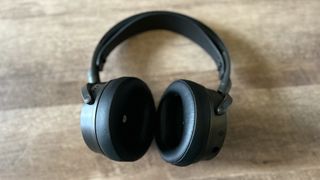
We test gaming headsets almost every day, constantly thinking about what it takes for them to be considered one of the best PC headsets for gaming out there - the lucky few make this list. Each member of this esteemed club has good sound quality and is comfortable for those longer playing sessions. Some offer more features and better audio than others, but usually, that bump in quality comes with a bump in price too.
It's easy to get hung up on stats like frequency response, range, and the size of the drivers inside each headset, but there's no real substitute for putting the headset on and seeing how it performs with actual games. That's what we do. We test headsets in online shooters like Marvel Rivals and CS2, to see how the surround sound performs, and we test in epic single-player games like The Last of Us Part 2 and Marvel's Spider-Man to see how the music, dialogue, and environmental ambiance comes through. We test titles with particularly complex audio components, like Doom Eternal and Horizon: Forbidden West, to see how well each range is balanced in the soundstage.
Games like Dead by Daylight are also used to see how any given headset copes with a more atmospheric soundscape, and how it places voice chat within it. Outside of our main game choices, what games are used during testing can differ depending on any given reviewers' access. At times, that can mean brand-new releases are included, which is always a plus as seeing how modern gaming headsets cope with new releases can be pivotal in the reviewing process.
Aside from your actual audio experience, we also measure a PC headset's design and features according to several objective principles.
We're constantly checking on build quality across all elements, including materials, joints, hinges, cushioning, and portability while also thoroughly exploring the comfort of a device across a range of different head shapes.
In the world of features, we're looking at which connections are on offer, as well as their versatility, reliability, and speed, as well as the number and placement of onboard controls. We compare microphone properties and software offerings (as well as how intuitive it is to access them) as well as battery life, charging ease, charging speed, and power savings features as well. All of that is directly compared against other PC headsets within a similar price category by using each device side by side, rather than just referring back to our notes. That's because every PC headset we test stays within our rosters for years to come so that we can accurately map the market's best value at all times.
Once a review is published, we evaluate each PC headset based on a series of scores across; comfort, audio, battery, microphone, versatility, and build quality to see if they make it into this top guide. PC headsets must score 5/5 in at least one category to be considered for the guide, though our 'best budget' category is a little more flexible with this rule.
You can find out more about how we test gaming headsets on the full GamesRadar+ Hardware Policy.
Also Tested
OXS Storm G2 wireless headset | Available at AmazonThe OXS Storm G2 wireless gaming features a unique design thanks to its off-white colorway and space-age markings, and is compatible with gaming PC's via a wired connection, Bluetooth, or its accompanying 2.4GHz dongle. PC players definitely have the most options when it comes to this budget sub $100 headset, and it comes with a surprisingly good detachable mic and pretty subdued RGB lighting. However, its lackluster sound and build quality make alternatives like the Razer BlackShark V2 Hyperspeed more ideal for PC players despite the slightly higher price point.
OXS Storm G2 wireless headset review
Turtle Beach Stealth 700 Gen 3 | Available at AmazonThe Stealth 700 Gen 3 is the latest headset to join the Stealth line, and is one of the best-sounding pair of cups I've ever tested, thanks in part to its premium 60mm dual eclipse audio drivers. At $199.99 / £179.99, the Stealth 700 Gen 3 is a bit pricier than its mid-range rivals, and although it keeps sound enclosed with its bulky cups, it doesn't quite live up to the comfort set by the Razer BlackShark V2 Pro.
Alienware Pro Wireless headset | Available at Amazon
The Alienware Pro Wireless gaming headset is a mid-range pair of cups with a $229.99 / £221.99 price point. While it's pricier than other mid-range cups, it sets itself apart with its active noise canceling and wider 20Hz - 40kHz frequency range while still ensuring a comfy fit. On PC this headset shines the most, offering up customizable options through the optional Dolby Atmos software. However, alternatives like the SteelSeries Arctis Nova Pro Wireless headset remain a better option for PC owners because of its flexible mic and hot-swappable batteries.
Alienware Pro Wireless headset review
Reviewed January 2025
Asus ROG Delta II | Available at Amazon
The Asus ROG Delta II headset can simultaneously connect to consoles and PC platforms via Bluetooth and 2.4 GHz and brings a plethora of premium new features to the Asus headline line. At $229 / £219, while an impressive piece of tech, it feels like a weaker package compared to Razer's BlackShark V2 Pro which provides a more vibrant sound quality and is already part of this list.
Asus ROG Delta II review
Reviewed January 2025
Razer Barracuda X Chroma | Available at Amazon
The Razer Barracuda X Chroma (2024) introduces RGB lighting to the Barracuda lineup for the first time and still manages to uphold the sound and build quality that the previous headsets established. The multi-platform excellence providing an easy switch between Bluetooth and 2.4GHz wireless connections is still on full display, but this flashy add-on comes at a cost of $129.99/£129.99 making the previous model a more budget-friendly PC headset.
Razer Barracuda X Chroma review
Reviewed December 2024
Turtle Beach Stealth 500 | Available at Amazon
The Turtle Beach Stealth 500 is a solid budget headset, but its value will be better felt by multiplatform players. It's a competitor for the Razer Kraken V3 X, but prioritizes its wireless connection while dropping down a rung in sound and build quality.
Turtle Beach Stealth 500 review
Reviewed August 2024
Turtle Beach Atlas Air | Available at Amazon
The Turtle Beach Atlas Air is actually our favorite open back gaming headset overall, but the Corsair Virtuoso Pro clinches the deal for PC players with its improved mic and extra streaming features.
Reviewed June 2024
Turtle Beach Stealth 600 Gen 3 Wireless | Available at Amazon
This is actually an excellent value headset, offering wireless connectivity and a solid design for just under $100. However, it's not quite cheap enough to worry the Razer Kraken and doesn't pack the same punch as the Razer BlackShark V2 Hyperspeed.
Turtle Beach Stealth 600 Gen 3 Wireless review
Reviewed June 2024
HyperX Cloud 3 Wireless | Available at Amazon
The HyperX Cloud 3 Wireless still offers one of the best battery lives we've seen in a PC headset, but its lack of extra connection options holds it back.
HyperX Cloud 3 Wireless review
Reviewed June 2024
SteelSeries Arctis Nova 5X | Available at Amazon
This is a fantastic headset, taking the drivers and audio quality from the Nova 7 and adding extra EQ features. The Nova 5 is definitely more geared towards a console crowd than PC, however.
SteelSeries Arctis Nova 5 Wireless review
Reviewed May 2024
Corsair HS80 Max | Available at Amazon
The Corsair HS80 Max is a solid mid-range headset, but it's got stiff competition in the BlackShark V2 Hyperspeed and with a lower quality microphone it just loses the matchup.
Reviewed April 2024
Astro A50 X | Available at Amazon
This is a beast. The Astro A50 X is a particularly expensive headset that excels in a multi-platform setup. If you're running a PS5 or Xbox next to your PC it's a must-see, but its feature list (and price tag) is bloated for pure desktop use.
Reviewed February 2024
Sony Inzone H5 | Available at Amazon
The Sony Inzone H5 is one of the brand's more recent attempts to jump in on the PC crowd. While it's particularly comfortable and offers a nice soundstage, it's stuck in between PC and PS5 features without really ever satisfying either platform.
Reviewed November 2023
Logitech G Pro X 2 | Available at Amazon
The Logitech G Pro X 2 looks and feels great, with all the features you'd expect to see in a refresh. Its microphone doesn't quite match up to the BlackShark V2 Pro, though, and its USB-A receiver could get in the way.
Reviewed July 2023
SteelSeries Arctis Nova 4 | Available at Amazon
The Nova 4 has largely been surpassed by the Nova 5 nowadays, with a similar price tag and far shorter feature list. This is a solid device in its own right, but against the rest of the market it struggles to prove its worth.
SteelSeries Arctis Nova 4 review
Reviewed June 2023
RIG 800 Pro HS | Available at Amazon
If you want the charging dock of the Astro A50 X without the astronomical price, the RIG 800 Pro HS might make some sense. It's a little lackluster in both sound quality and build, though, and runs some seriously outdated connections.
Reviewed May 2023
Turtle Beach Stealth Pro | Available at Amazon
The Turtle Beach Stealth Pro is a powerhouse, but it's been overtaken by the Astro A50 X for multiplatform uses and doesn't quite offer the kind of competition the SteelSeries Arctis Nova Pro Wireless needs to be knocked off its thrown. Still, if you're after ANC, hot-swappable batteries, and a chunky design this is still a winner.
Turtle Beach Stealth Pro review
Reviewed April 2023
How to choose a PC headset
Of course, the very best PC headsets cost a pretty penny - but you can whittle that final cost down if you already know which features you want to prioritize. You can make sure you're choosing the right PC headset for you if you already know which of these elements are must-haves. For example, if you want to go all out on surround sound but don't need a wireless connection you'll find a range of more focused wired models on the market. Or, if you're prioritizing that 2.4GHz freedom but only play single player games, you can drop down a level in microphone quality to spend less as well.
Once you know what you need, you'll need to decide how much you want to spend. There are some features (like simultaneous Bluetooth connections or high-end graphene drivers) that will automatically catapult you near to the top of the price range. However, there are other sacrifices that can be made to find the model offering the right specs for you.
In general, PC headsets move up along a similar price trajectory, adding or improving features as they get more expensive. You can work out exactly what you'll be paying for each experience just below, but it's worth remembering that this is a generalization - there will always be outlier devices that focus more on specific areas by deprioritizing others.
$10 - $40
Why you can trust GamesRadar+
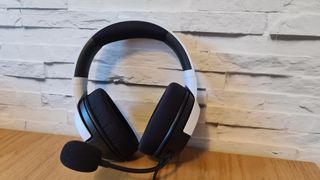
This is the ultra-budget category, where you'll be limited to a wired connection and lower quality dynamic drivers. That's not to say the audio is going to be bad at this price range, but it's going to be more restrictive in its soundstage, might not offer surround sound technology, and will likely suffer from distortion at higher volumes, particularly in the bass range.
Budget PC headsets like this can make for excellent value if you just need audio for as little as possible, though. You'll still be able to find a microphone, though it likely won't include any noise cancellation features and the vast majority are non-detachable which could be an inconvenience for solo players.
PC headsets in this price category tend to be produced using lower quality materials, which means they won't have as long a lifespan as a more premium option. Be sure to keep hinges and any leatherette earcups safe to extend its life.
$40 - $80
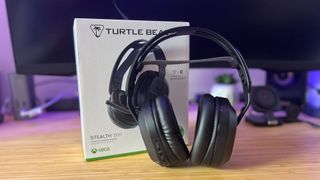
This is where I'd recommend the majority of casual players begin their search. The $40 - $80 price bracket introduces a few cheaper 2.4GHz wireless options, and you'll notice a slight jump in audio quality as well. These headsets are more likely to use temperature-controlling mesh earcups for extra comfort and could come with additional padding around the headband as well.
Brands still won't be plugging their highest-quality drivers into these headsets, but this price range does open you up to more surround sound options on PC. Towards the top end of that bracket you may also find dedicated EQ software included in the package as well.
Your microphone will likely be solid, though might not feature more premium qualities like active noise cancellation or super wideband frequencies.
$80 - $150
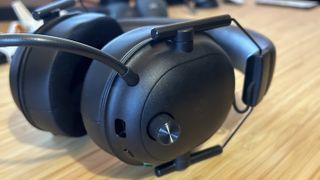
This is the real mid-range, where wireless headsets start to take the lead away from wired alternatives (especially at the top end of that bracket) and additional Bluetooth support starts to enter the fray. That can wildly open up your compatibility, meaning these headsets can be used with Nintendo Switch, mobile, or as everyday commuting headphones.
You'll notice a larger jump in sound quality here, especially if you're buying a cheaper version of a more premium release (like Razer's X or Hyperspeed lines). For example, the Razer BlackShark V2 Hyperspeed and SteelSeries Arctis Nova 5 are both square in the middle of this price bracket, and both use the exact same drivers and microphones as their more expensive counterparts.
We tend to see PC headsets prioritizing internal features and sound quality before they tackle build, though, so devices in this price range will still likely feel a little cheaper in the hands and we'd still recommend care when adjusting hinges.
$150 - $250
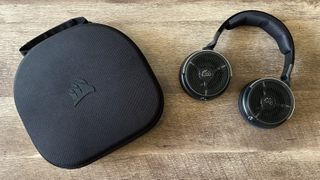
There's a slight jump in feature sets when moving above $150, but the gears really start to shift once you're over that $200 mark. If this is where you find yourself, though, you can expect a boost in clarity and soundstage as headsets start to employ their more premium drivers. Comfort and build quality do take a slight jump at this price point, and most devices you'll be looking at will offer both Bluetooth and 2.4GHz connections, with the ability to easily switch between the two on the fly.
$250 - $400

This is the high-end market, where headset manufacturers put their best horses into the race with the latest drivers, unique features, and robust build qualities. Things do start to become a little more specialized here, though, so I'd recommend doing your homework. You'll start to see cheaper audiophile selections in here, with alternative planar driver types, graphene diaphragm materials, and additional tuning. Between hot-swappable batteries, multi-platform connection hubs, and built-in charging docks, there are plenty of cool extras included in this price range.
Glossary
- ANC: Active Noise Cancellation: A process that stops external sounds from interrupting you while you play but using a microphone to pick up unwanted audio and a separate sound frequency to block it out.
- Closed-back: A headset design that keeps the driver fully enclosed within the chassis of the device. This provides a natural sound isolation that prevents unwanted noise bleed in either direction.
- Distortion: Distortion occurs when sound waves are disturbed by high-volumes or improperly tuned drivers, most frequently in the lower ranges.
- Driver: The part of your headset responsible for converting electrical signals into sound waves, therefore producing audio.
- EQ: Many PC headsets offer EQ software to help you fine-tune your listening experience. This comes in the form of a customizable graph plotting the emphasis of each audio range.
- Frequency range: The scale of frequencies (low to high) that a gaming headset is capable of producing - usually sitting at between 20Hz and 20kHz.
- Latency: The speed at which you hear in-game events through a headset. Latency is usually referred to when discussing wireless PC headsets, as the 2.4GHz or Bluetooth connection may be slower than a cable.
- Open-back: A headset design where the driver is left open and unhoused, creating a wider soundstage but sacrificing noise isolation in both directions.
- Preset: A customized EQ selection that can be applied to certain games and automatically applied when you load that game.
- Soundstage: The imagined space that the audio from a gaming headset creates around you as you're playing.
- Virtual surround sound: The process of creating a series of virtual speakers to simulate a surround sound setup, usually with seven points of audio and one bass center (hence, the 7.1 surround sound descriptor).
Best PC gaming headset: FAQ
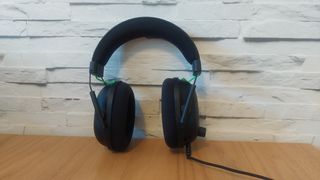
What is the best headset for gaming on a PC?
Everyone will have their favourite PC gaming headset but there really isn't one that can be pointed to for 100% of users and needs. The best headset for PC we've tested so far is the Razer BlackShark V2 Pro, but it's not going to fit all uses.
However, it's best to think about what you need from a headset, and the pieces will start to fall into place. For example, when you start drawing lines in terms of price tag, you'll start to get closer to the best headset for you, and then you can make calls like going wireless or staying wired, which features are must-haves, and so on. This is the way to find the best headset for gaming on a PC, for you.
Which PC headset brand is the best?
The PC gaming headset market is a rich and diverse, and very full, one. As a result, and because a lot of brands have been going at this for a while, there really isn't just one brand that sits above the rest for everyone.
However, plenty of brands are perennially reliable and excellent, and you can barely go wrong with anything from them. The likes of Razer, Astro, SteelSeries, Corsair, Sennheiser (now EPOS), and HyperX are all favourites with lots of gamers for good reasons. And while each will be slightly different, and offer slightly different features and audio executions, they will all fit differently due to build and comfort, price, and flexibility. Be aware of exactly what you need when you start off and you'll soon whittle it down.
Is a wired or wireless headset better for gaming?
Back in the day, even the best wireless gaming headsets couldn't keep up with game audio. That meant high latencies, missed shots, and late directional cues. With the super-fast 2.4GHz connections we have today, though, those issues are all ironed out. These days the speed difference between a wired and wireless connection is negligible - though if you're a pro playing competitively you might still prefer the reliability of a wired cable. While casual players won't notice the difference in connections, though, the choice between a wired or wireless PC headset comes down to battery and comfort preferences.
After all, playing on a PC means you don't have to worry so much about cable length when at your desk (and you can take advantage of USB-connecting headsets). That means you might prefer a wired headsets to avoid having to charge the device, especially if you don't mind having an extra wire on the desk.
If, however, you plan on using your headset as a regular set of headphones when out and about - or you want to connect to other devices without tethering - wireless is the way to go.
What headsets do pro gamers use?
Most of the biggest brands and manufacturers are represented at the top of the esports table - Logitech, Razer, EPOS, and more are all present among the top teams. But such is the accessibility and sometimes downright affordability of the top sets, looking at what the pros use and aiming to replicate that has actually never been easier; the gap between everyday gamers and the pros is not as wide as some might think.
And remember, the headset market covers a lot of ground: check out the best PS5 headsets, the best Xbox Series X headsets, and the best Nintendo Switch headsets to cover your bases and round out your research thoroughly.
Sign up to the GamesRadar+ Newsletter
Weekly digests, tales from the communities you love, and more

Ever since I first held a NES controller in my hand I've been obsessed with gaming, and the hardware it runs on. I could hook up a NES and SNES to a telly, without instructions, before I could walk. Even now, nothing is more exciting then taking a console, or handheld, out the box for the first time and setting it up. This obsession transformed into a love of games and game music, which lead to my music degree and dream of becoming the Scottish Nobuo Uematsu. After sharing my love of games through music, I began to share my love through words on sites like TechRadar and iMore. This lead to becoming a Hardware staff writer for PCGamesN, and later the Senior Tech Writer for Dexerto, covering all things Steam Deck, PlayStation and Nintendo. With that experience, I was able to level up as Hardware Editor for GamesRadar+, where I'm still just as Nintendo, PlayStation and gaming tech obsessed as ever.
- Tabitha BakerManaging Editor - Hardware
- Rob Dwiar
